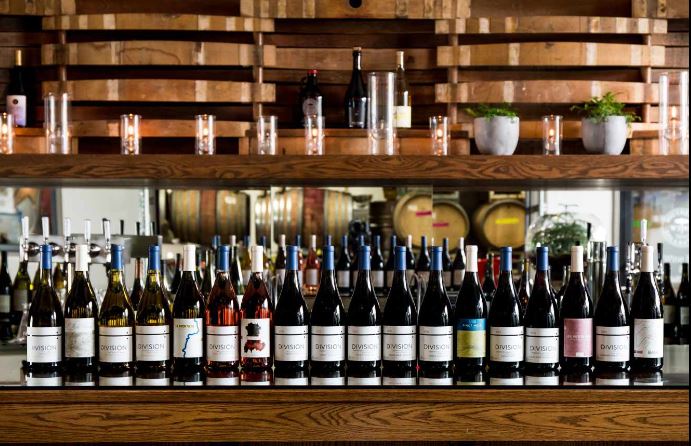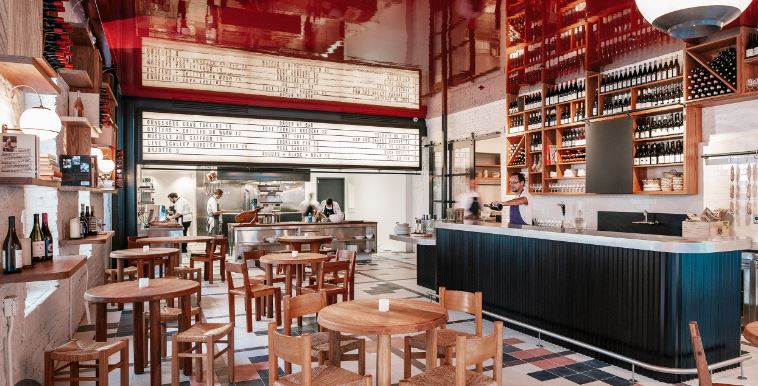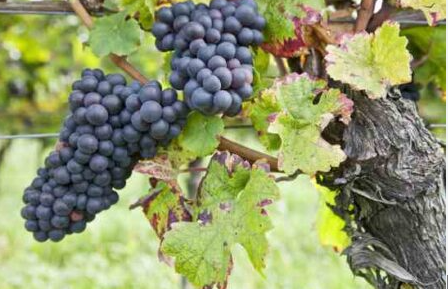Wine bars have long been social havens for wine enthusiasts, offering a place to unwind, explore new vintages, and connect with fellow aficionados. However, the conversation around wine is increasingly shifting to encompass not just taste and terroir, but also eco-friendly practices. Eco-friendly wine bars are on the rise, attracting environmentally conscious consumers who seek a sustainable experience alongside their favorite wines. This blog post delves into the growing trend of sustainable wine bars, exploring the innovative practices they embrace and the impact they have on the environment.

Embracing Sustainability in Wine Bars
Eco-friendly wine bars go beyond simply offering organic or biodynamic wines. They implement a holistic approach to sustainability throughout their operations:
Sustainable Sourcing
Eco-friendly wine bars prioritize sourcing wines from producers who embrace sustainable viticulture practices. This includes organic and biodynamic farming methods that minimize the use of pesticides and herbicides, promoting biodiversity and soil health in the vineyards. Additionally, these bars often seek out local wineries, reducing their carbon footprint by minimizing transportation distances.
In addition to sustainable wine sourcing, eco-friendly bars extend their focus to other aspects of their supply chain. They actively seek out partnerships with local food purveyors who offer organic, ethically sourced ingredients for their cheese plates, charcuterie boards, and small bites. This commitment to local sourcing ensures freshness, supports local businesses, and minimizes the environmental impact associated with long-distance food transportation.
Waste Reduction and Responsible Recycling
Eco-friendly wine bars implement effective waste reduction and responsible recycling programs. They opt for reusable dishware and cloth napkins whenever possible, minimizing the use of single-use disposables. Additionally, they implement comprehensive recycling programs for glass bottles, cardboard boxes, and other recyclable materials generated during daily operations.
Furthermore, some bars even take waste reduction a step further by composting food scraps and using them to nourish urban gardens or local farms. These composting initiatives divert organic waste from landfills, reducing methane emissions and creating nutrient-rich compost for sustainable agriculture.
Energy Efficiency and Eco-Conscious Design
Eco-friendly wine bars prioritize energy efficiency in their design and operations. They utilize energy-efficient appliances and lighting fixtures, and some even invest in renewable energy sources like solar panels to power their establishments. Additionally, the design of these bars often incorporates sustainable elements like reclaimed wood furniture, low-VOC paints, and natural ventilation systems.
In consequence, these efforts not only reduce the environmental impact of the bar’s operations but also create a warm and inviting atmosphere that resonates with eco-conscious consumers.
The Impact of Eco-Friendly Wine Bars
The rise of sunstainable wine bars extends beyond their immediate footprint, creating a ripple effect that benefits the environment and the wine industry:
Consumer Education and Awareness
Eco-friendly wine bars play a crucial role in educating consumers about sustainable winemaking practices and responsible consumption. Also, through curated wine lists, informative signage, and staff engagement, these bars raise awareness about the environmental impact of wine production and empower consumers to make informed choices.
In addition to consumer education,sustainable bars influence the wine industry as a whole. By prioritizing sustainable wines and showcasing their quality, these establishments create a growing demand for eco-conscious winemaking practices. This, in turn, encourages wineries to adopt sustainable viticulture methods, leading to a more environmentally responsible wine industry.
Building a Sustainable Wine Culture
Sustainable wine bars contribute to building a more sustainable wine culture. Also, they create a welcoming space for environmentally conscious consumers who can enjoy their favorite wines without compromising their values. This culture shift fosters a sense of community and shared responsibility for the environment within the wine world.
Furthermore, the success of eco-friendly wine bars inspires other establishments to adopt sustainable practices. As more bars embrace environmentally conscious approaches, the movement gains momentum, paving the way for a greener future for the wine bar industry as a whole.
Conclusion
The rise of sustainable wine bars signifies a positive shift within the wine bar industry. These establishments demonstrate that sustainability and quality can go hand in hand. Also, offering a delightful wine experience while minimizing environmental impact. As consumer demand for sustainable practices continues to grow, sustainable wine bars are poised to become the standard. n So, raise a glass (preferably made from recycled materials!) to the future of wine bars – a future that is as delicious as it is sustainable.




